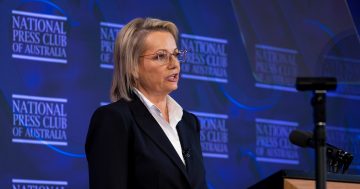Suyin Haynes* says a new study reveals that girls around the world expect female leaders will suffer discrimination and sexual harassment.

Photo: Johannes Plenio
A new report published last week reveals that nine out of 10 girls around the world believe that female leaders suffer widespread discrimination and sexual harassment.
Produced by child rights organisation Plan International in partnership with the Geena Davis Institute on Gender in Media, the report found that while a majority of girls and women worldwide want to take leadership positions in the workplace, politics and wider society, an overwhelming majority of those surveyed believe that women leaders face unfair treatment.
According to the research, 93 per cent of respondents believe female leaders experience unwanted physical contact, and 94 per cent believe women aren’t treated as well as men in leadership positions.
The research, titled Taking the Lead, was carried out across 19 countries, with almost 10,000 girls and young women aged 15–24 participating in what the report’s authors say is one of the world’s first studies highlighting the leadership aspirations, perceptions and experiences of this demographic on a global scale.
The study also found that young women from low-income countries were more likely to want to be leaders of their country, community or family than those from higher-income countries.
“The findings show that despite having the aspirations to lead, girls and young women have extremely negative perceptions of what being a female leader involves,” said Anne-Birgitte Albrectsen, CEO of Plan International.
“No matter where you are — USA or India, Japan or Sudan — for girls and women globally, being a leader means discrimination and harassment.”
“That’s a major deterrent.”
While a majority of Americans say they would like to see more women in top leadership positions according to a Pew Research Center survey in 2018, most say men still have an easier path to the top and that women have to do more to prove their worth.
Worldwide, only 17 heads of state in 2018 were women, and only 6.6 per cent of companies comprising the Fortune 500 are led by female CEOs.
The report found that while nearly 60 per cent girls and young women want to be a leader in the workplace and over 75 per cent aspire to be a leader in their country, community or career, overall they perceive a lack of respect for, and harsher criticism of, female leaders.
“Inequality, intolerance and isolationism are on the rise,” Albrectsen told TIME.
“The arc of history is bending back, away from justice.”
“To turn things around, we must unlock the full power of girls’ leadership.”
* Suyin Haynes is a Senior Reporter covering gender and culture for TIME. She tweets at @suyinsays.
This article first appeared at time.com.











